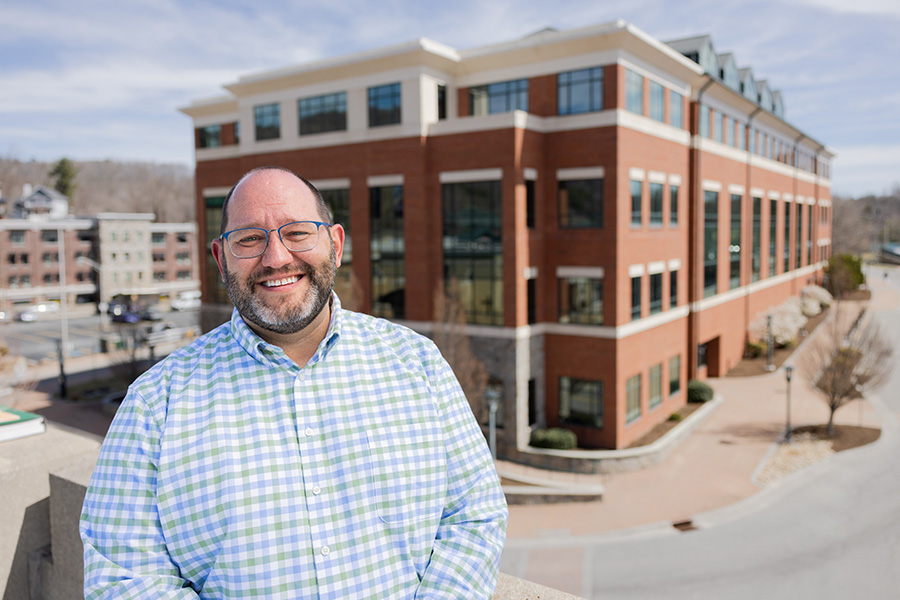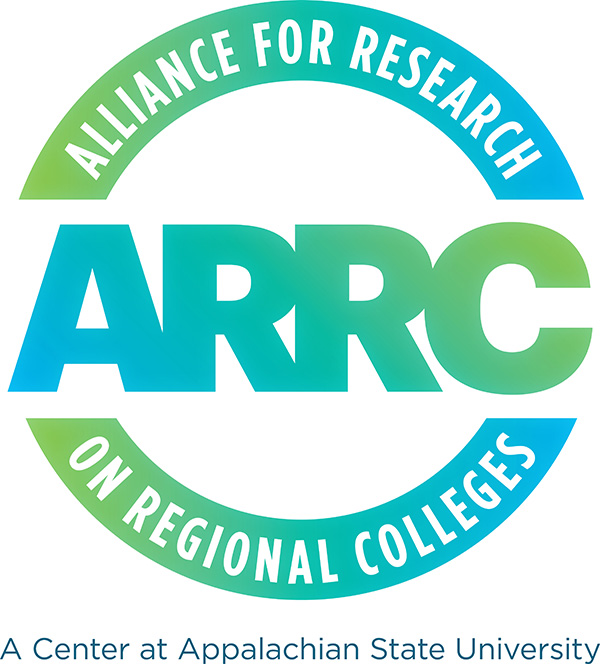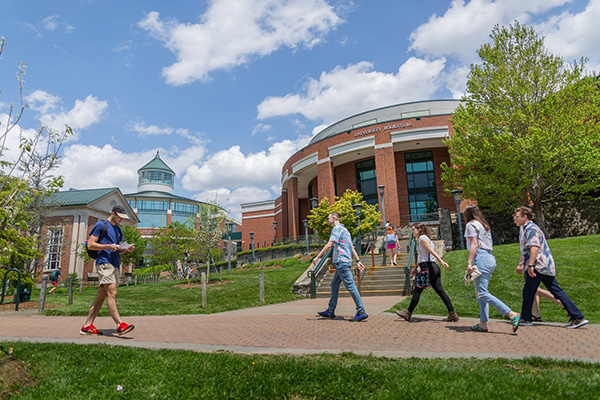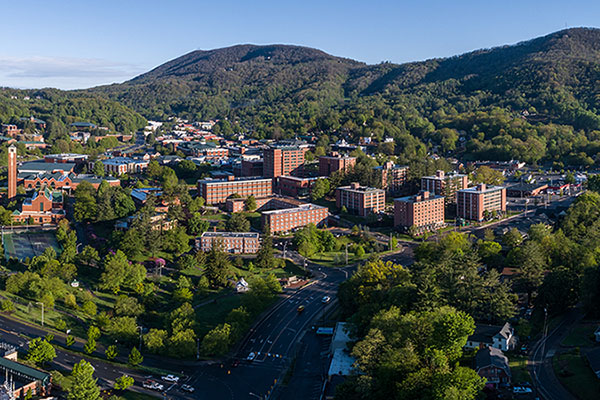BOONE, N.C. — More than $7 million in grant funding awarded to the Alliance for Research on Regional Colleges (ARRC), based at Appalachian State University, will help advance higher education and workforce development for individuals in rural communities over the next four years. Housed in the Reich College of Education, ARRC is a research collaborative and resource hub that examines the role and impacts of regional and rural-serving colleges and universities.
The $7,245,600 grant, awarded by Ascendium Education Group, supports the establishment of a Rural Talent Development and Attraction Lab in five partner states. A nonprofit organization, Ascendium is dedicated to creating opportunities for learners from low-income backgrounds to achieve academic and career success.
Led by ARRC Executive Director Dr. Andrew Koricich, professor in App State’s higher education graduate program, the ARRC team will partner with the states’ higher education executive agencies to develop a statewide Rural Talent Development and Attraction Plan. These plans include the creation and implementation of at least four credential pathways, providing opportunities for learners to earn associate degrees and undergraduate certificates that support the rural workforce needs of each state.
Koricich explained that these credential pathways will be developed in partnership with, and with input from, the rural communities that stand to benefit from the project — with the goal of creating opportunities that are accessible, connected to local employment and low-cost for rural learners. Such higher education credentials equip learners with skills tailored to specific occupations or industries and can typically be completed in less time than it takes to earn a bachelor’s degree.
“By involving rural stakeholders in the pathway design process, the Rural Talent Lab will create opportunities tailored to local economic needs while also mobilizing the local support needed for long-term success,” said Koricich, the project’s principal investigator. “Our on-the-ground approach will lead to opportunities that allow rural people to learn, work and live in the places they love.”
As part of the Rural Talent Lab project, the ARRC and state teams will participate in community listening tours, engaging in detailed conversations and knowledge-sharing with stakeholders in multiple rural communities of each state. Additionally, public opinion surveys will be administered to the states’ rural residents to ensure input on the project is received beyond the listening tours.
To facilitate its Rural Talent Lab project, the ARRC team will work in collaboration with the State Higher Education Executive Officers Association (SHEEO) and HCM Strategists, a consulting firm dedicated to advancing social and economic mobility through postsecondary education and career-connected learning. SHEEO supports state higher education leaders by promoting policies and practices that advance equitable education opportunities nationwide.
“The Rural Talent Lab presents a unique opportunity for states to equip students and grow their economy by creating deliberate pathways between programs of study and workforce needs,” said SHEEO President Rob Anderson. “This type of innovative investment will ensure that these communities develop needed talent and infrastructure to thrive for years to come.”
Kirstin Yeado, senior strategy officer at Ascendium, shared that Ascendium plans to explore how the approach of the Rural Talent Lab project can be a model for other states committed to prioritizing rural talent development.
“The Rural Talent Lab’s commitment to designing affordable, employer-aligned credentialing programs will ensure rural learners have a clear pathway to upward mobility,” Yeado said.
According to Koricich, the Rural Talent Lab aims to open its credential pathways to learners in fall 2027. The ARRC team will regularly review and assess the project to help inform the states’ ongoing expansion of credential pathways, while ultimately establishing a new model for rural talent development and attraction.
The Rural Talent Lab is one of several long-term projects ARRC has launched since its 2020 establishment, with an aim to provide research resources and services, along with data-driven analysis, around regional higher education institutions and the communities they serve.
According to a year’s worth of ARRC research led by Koricich, more than 1,000 colleges and universities across the U.S. — which currently educate nearly 5 million students — can be classified as rural-serving. The research suggests that rural-serving institutions should not only be identified by their location, but also by the communities they serve. Based on his report, App State is among the 46% of public four-year institutions that can be considered rural-serving.
Koricich shared that, as the Rural Talent Lab project progresses, opportunities will be available for App State students and additional App State faculty to engage with the project. Additionally, a collaborative, in-person professional development session for the state teams will be held at App State’s Boone campus in October.
Project updates will be made available on the Alliance for Research on Regional Colleges (ARRC) website, as well as on ARRC’s LinkedIn and Bluesky pages (@arrc.bsky.social and @ruraltalentlab.bsky.social).
What do you think?
Share your feedback on this story.
About the Reich College of Education
Appalachian State University offers one of the largest undergraduate teacher preparation programs in North Carolina, graduating about 500 teachers a year. The Reich College of Education enrolls more than 2,000 students in its bachelor’s, master’s, education specialist and doctoral degree programs, with offerings that span multiple fields — from teacher preparation, counseling, and therapy, to higher education, school and student affairs administration, library science, educational leadership and more. With over 10,000 alumni employed in North Carolina public schools, there is at least one Reich College graduate in every county in the state. Learn more at https://rcoe.appstate.edu.
About Appalachian State University
As a premier public institution, Appalachian State University prepares students to lead purposeful lives. App State is one of 17 campuses in the University of North Carolina System, with a national reputation for innovative teaching and opening access to a high-quality, cost-effective education. The university enrolls more than 21,000 students, has a low student-to-faculty ratio and offers more than 150 undergraduate and 80 graduate majors at its Boone and Hickory campuses and through App State Online. Learn more at https://www.appstate.edu.















